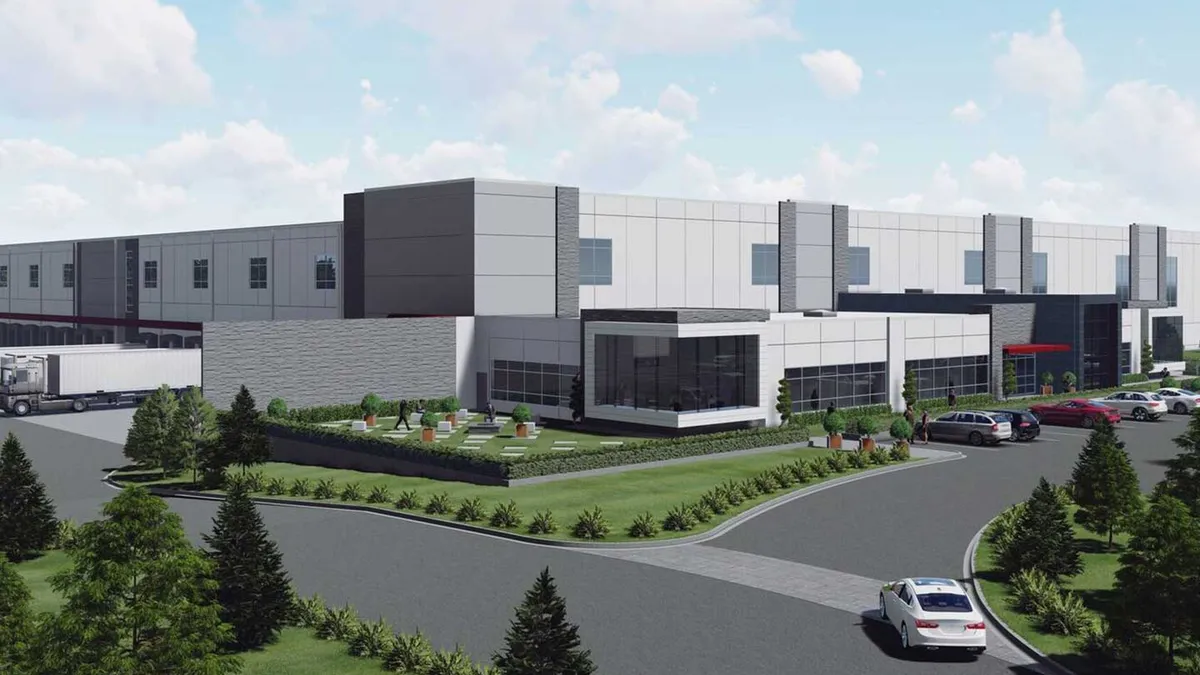Dive Brief:
- Georgia Governor Brian Kemp announced this month that Atlanta-based Chick-fil-A will open its first company-owned distribution center in Cartersville. According to Valdosta Today, the facility will create up to 300 jobs, including drivers, warehouse team members and administrative staff.
- A pilot facility is slated to open this summer and will serve one restaurant in Cartersville, per a company blog post. Chick-fil-A plans to test operations before its full-scale center is expected to open in the summer of 2020 and have a capacity to serve up to 300 restaurants.
- Paul Trotti, executive director on the distribution project, told the publication that the investment will allow the company to innovate around Chick-fil-A restaurants' needs and better serve operators, employees and customers.
Dive Insight:
When it's open, Chick-fil-A's full-service distribution center will serve about 12.5% of the system, a good sample to provide applicable learnings on menu innovations, as well as supply chain logistics and efficiencies. Such data could provide a more seamless distribution process throughout the rest of the chain and identify how to drive cost savings and performance.
By running its own distribution facility, Chick-fil-A will also be able to manage food safety parameters and quality control. This may garner even more trust from consumers, who increasingly want to know where their food is coming from. It also gives the restaurant more control over its supply chain versus renting or contracting a center, which helps companies like Chick-fil-A scale up. But what's perhaps most interesting about this development is that the company itself states in its blog post that the impetus behind this new facility is to keep up with higher store volumes, including from delivery.
Domino's, a leader in delivery, has already made its own moves to evolve its supply chain. Last year, the pizza chain announced that it would build 2 "supply chain centers" that would serve as both a warehouse and distribution center. According to Supply Chain Dive, the company's decision was likely a move to scale up and meet growing volume.
Still, supply chains are complicated and this move doesn't necessarily mean Chick-fil-A will move its entire system over to company-owned facilities anytime soon. But if the company yields progress and likes what it is sees from a logistical and cost perspective, it could lead to more such centers and a change in its distribution model all together.
For Chick-fil-A, the distribution center is just one of many changes it's made recently to meet the demand for delivery, or even to its supply chain system. Last year, the chain rolled out a system that traces its food products from supplier to restaurant. It also opened fulfillment prototypes in Nashville and Louisville that are designed specifically for delivered meals, including catering.













